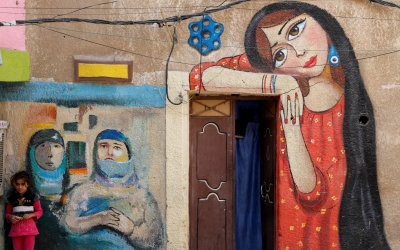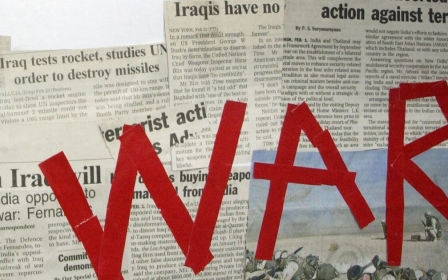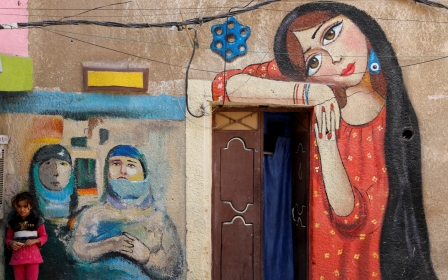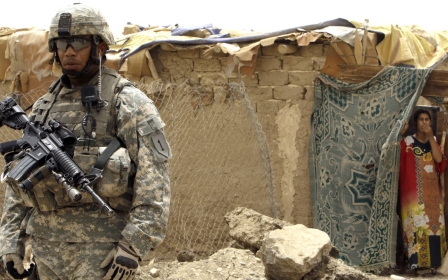Iraq war pushed the country towards more crises than it can handle, experts say
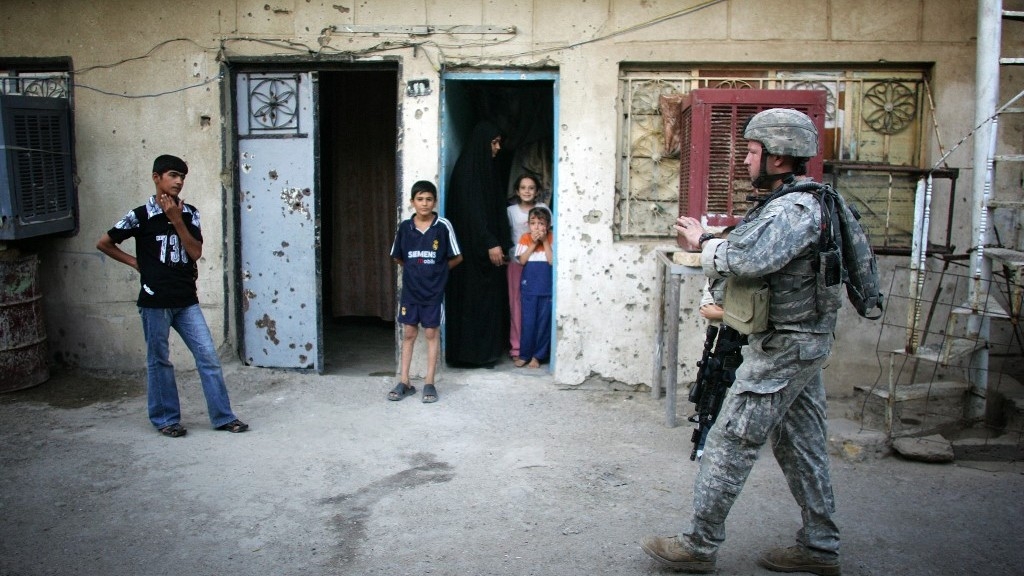
Looking back on the twenty years since the US invaded Iraq, the war has had wide-ranging impacts on the region which are not going away any time soon.
"[The war] unleashed sectarian tensions and violence, a fresh wave of militancy, and reshuffled regional politics in a dramatic fashion,” Mohanad Hage Ali said, a senior fellow at the Carnegie Middle East Center, said on Wednesday at a panel on the 20th anniversary of the US invasion of Iraq.
New MEE newsletter: Jerusalem Dispatch
Sign up to get the latest insights and analysis on Israel-Palestine, alongside Turkey Unpacked and other MEE newsletters
The war was waged to stem terrorism, but it instead created an incubator of terrorism in Iraq, Marsin Alshamary, a research fellow at the Middle East Initiative at the Belfer Center for Science and International Affairs with the Harvard Kennedy School, said. She explained how prior to 2003, Iraqis would have laughed at the idea that the country was linked to terrorism, but that is no longer the case.
“Somehow that argument was pushed through American foreign policy circles and the endless labyrinth that is American foreign policy making,” she said. “It did ultimately unleash waves of terrorism upon Iraq, its citizens, and neighbouring countries.”
These incubators of terrorism had far-reaching consequences such as waves of migration, the loss of lives, and sectarianism in the region, Alshamary said.
And as a result, Iraq is still injured today, Zeinab Shuker, an assistant professor of sociology at Sam Houston State University, said.
“If you walk around Baghdad, it's not a sense of nostalgia to the past,” Shuker said. “The city itself is bleeding from decades of injustice.”
For Shuker, who was raised in Baghdad, it hurts her when she walks around the city's streets today. Instead of seeing palm trees, there are “fragmented” houses, she said.
It’s important to note though, that most of these issues didn’t just begin in 2003; they began much earlier than that, Shuker explained.
“We're talking about a population that has witnessed a lot of pain, a lot of trauma, and a lot of distrust”. Shuker explained how her father lived in Iraq in the 1970s and witnessed political violence against political opposition. Her father’s generation lived through the Iraq-Iran war and experienced that trauma - a trauma that hundreds of thousands of people faced, she said.
“We're talking about the 1991 events and war and what that did to Iraq and the economic sanctions. We're talking about people - who for a very long time before 2003 - have been surviving and not living and thriving,” Shuker said.
The successive crises are what undermined their ability to think and engage in state-building, she said. It created a weakened state that was incapable of responding to major crises, for example, climate change.
“Every time there is a water shortage - and Iraq is one of the most water insecure places on Earth - Iraqi leaders try to negotiate with Turkey or Iran. And most oftentimes, these negotiations don’t lead anywhere.”
Iraq has two main sources of water - the Tigris and Euphrates rivers. The intake of water from both rivers is decreasing because of the construction of upstream dams and prolonged droughts, according to the International Organisation for Migration.
Climate change, rising temperatures, and the diversion of river water contribute to residents struggling to access adequate water for their homes.
“I am optimistic. I don't think it's unsolvable. I think that the state itself may be not equipped to handle the crises that it's facing right now, but I think we are seeing generations of people who did not live under Saddam's regime,” Shuker said. “People who have seen the Iraqi state after 2003 and who are slowly developing a different sense of identity and a different relationship to the state and the political parties.”
“And these different individuals, this new generation, can be the solution for multiple decades-long injustice and injury that the state and its people have been facing.”
Middle East Eye delivers independent and unrivalled coverage and analysis of the Middle East, North Africa and beyond. To learn more about republishing this content and the associated fees, please fill out this form. More about MEE can be found here.


